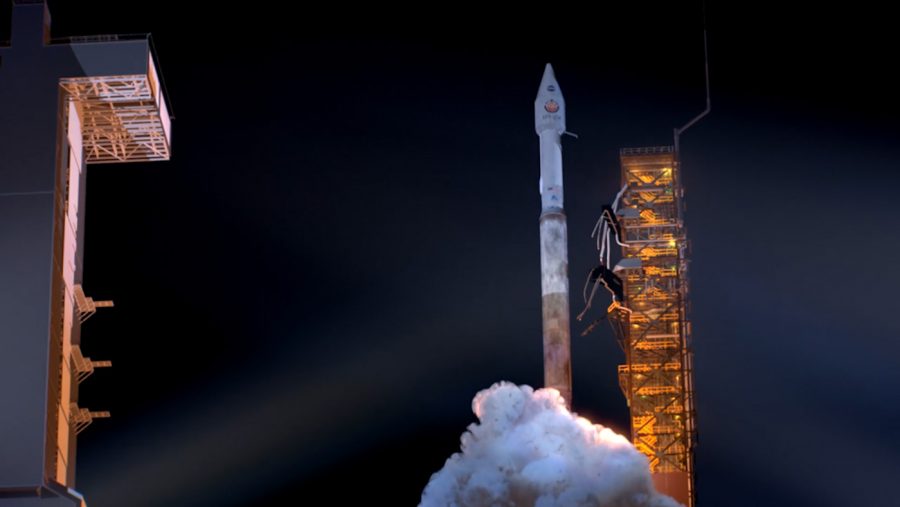NASA, Look no Further
Why must we continue to explore?
January 23, 2019
It’s the 1920s. Ernest Hubble looks at the night sky, muttering the spark of humanity’s obsession with the beyond. These untouched enigmas make Curiosity’s ears perk up. But for once, I wish Curiosity would pretend it didn’t hear the anthem of exploration.
With the New Year came an onslaught of pictures from NASA’s interplanetary reconnaissance probe, New Horizons. Namely these were of the peanut-shaped asteroid Ultima Thule. While the name has an air of finality to it, Ultima Thule is merely a milestone in New Horizon’s 13- year journey.
NASA’s reason for launching this mission is simple. It wants to trace the origin of Earth to critical compounds of life found on celestial beings and asteroids.
While finding this epic truth seems tempting, I ask the question—why? When and if we do get an answer, why does it matter? How will it help?
The final result of this mission is that a small hole in our knowledge will be lightly shaded in. But at what cost? According to The Balance, a website that analyzes budget and debt, NASA spent $700 million of its budget on New Horizons.
Imagine this mountain of money put to the barrage of pressing problems on our loyal Earth. You don’t have to look to a third world country to see debilitating poverty, crumbling infrastructure or poor education. It’s at our fingertips, if one can look past the fog of comfort surrounding Loudoun County.
However, one glaring point refuses to be overlooked. The elephant in the room in any exploration mission is humanity’s need to know more. No topic can remain unturned, for that would be going against our very nature. If humans were made so innately curious, then why can’t that same drive be applied to providing opportunities for children to go to college and not get stuck in generational poverty?
Why does our need to satisfy our restless brains have to be so untethered? Why can’t we indulge closer to home?
I normally trust that whatever NASA is doing, it will somehow benefit the public. They do more than place satellites. They were also responsible for bettering the effectiveness of chemotherapy through a partnership with medical researchers.
News like this makes me brim with warmth and happiness. Somebody out there put other people’s hardship first. However, the only news I get about New Horizons are sporadic pictures of barren moons, asteroids and planets, culminating in a split second of reverence for our universe that quickly morphs into boredom.
The likelihood of NASA continuing to conduct missions far down the interplanetary and intergalactic highway is high, given their mantra of “revealing the unknown.” Yet, my gut instinct is screaming—let’s not get too carried away with expanding our horizons before the waters at home have calmed.







